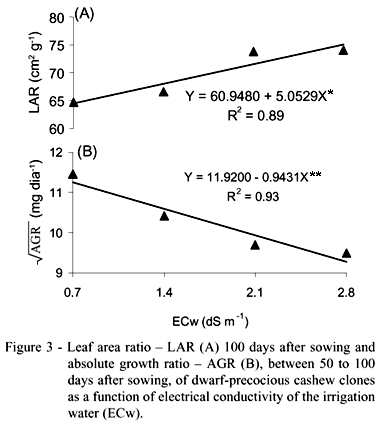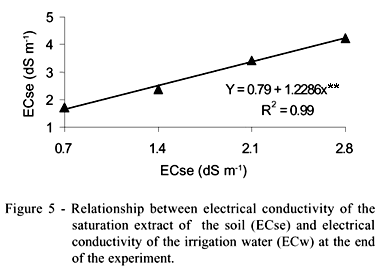The cashew crop (Anacardium occiedentale L.) is of great economic and social importance for Northeast Brazil, a region usually affected by water and soil salinity. The present study was conducted in a greenhouse to evaluate the effects of four salinity levels established through electrical conductivity of irrigation water (ECw: 0.7, 1.4, 2.1 and 2.8 dS m-1, at 25ºC), on growth and physiological indexes of five rootstocks of dwarf-precocious cashew varieties CCP06, CCP09, CCP1001, EMBRAPA50, and EMBRAPA51. Plant height, leaf area, dry weight of root, shoot and total; water content of leaves, root/shoot ratio, leaf area ratio, absolute and relative growth rates and rate of net assimilation were evaluated. The majority of the evaluated variables were found to be affected by ECw and the effects varied among clones; however, no significant interactive effects were observed for factors. The value of ECw = 1.39 dS m-1 was considered as a threshold tolerance for the precocious cashew rootstocks used in this study. The dwarf-precocious cashew is moderately sensible to soil salinity during the formation phase of rootstock. Clones EMBRAPA51 and EMBRAPA50 presented, respectively, the least and the best development indexes.
Anacardium occidentale; electrical conductivity; clones; saline stress










